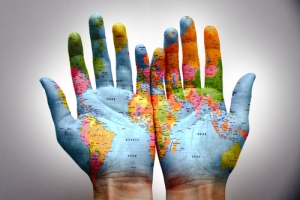A Missed Opportunity.
by maddicook
I am Australian, this is my home, but I am also an international student. I have friends from Dubai, Egypt, England, America and Canada. Alike many, both of my parents were born overseas and I am lucky enough to have family all over the world. I also hope to go on exchange in my third year of Uni and in the near future I hope to travel the world as a freelance journalist.
Nowadays, the distinction of an international student isn’t as simple as where you come from. It incorporates what language you speak, what you study, where you want to live, where you want to travel, who you’re friends with; the list is endless.
Globalisation has ‘increase in interdependence, interactivity, interconnectedness, and the virtually instantaneous exchange of information’ (O’Shaughnessy and Stadler, 458). As ‘global citizens’, national borders no longer bind us. We have adopted, adapted and hybridized with our near and far neighbours, enabling the globalisation of industries, an international workforce and a further understanding of global issues. It has also opened up opportunities for student to travel and study abroad.
However, social, cultural and communication barriers have made exchange a difficult experience for many international students.
For international students language has become a massive hurdle to concur. While many have learnt ‘English’ in school, the Australian vernacular is a lot different from any English you can be taught in a classroom. Drawing on qualities such as informality, abbreviations and slang, Australian English has drawn a clear distinction from the language of our British ancestors.
These communication barriers commonly cause a lack of confidence and a sense of alienation for many international students, in turn, partitioning them off from the rest of the Australian society.
Other cultural barriers, such as religious commitments, can also be hard to overcome. Social affairs in Australia are commonly based around a pub/club and drinking, which for many religious students can go against what the beliefs of their religion.
According to a studying on the potential of international education, it was discovered that ‘most international students want closer interaction with local students, and are prepared to take risks to achieve this. … most local students are not interested’ (Marginson 2012: 1, see also Vogl and Kell 2011). Whether this is due to international students short timespan spent studying in Australia, or whether we truly are a parochial society; this finding highlights a missed opportunity for many local students.
Cultural awareness and intercultural relationships are something to be treasured. We need to learn to welcome different cultures and ethnicities, and learn how to bridge this gap that has grown overtime. As a ‘global citizen’ it is part of our responsibility to accept and value the difference and diversity of other cultures.
